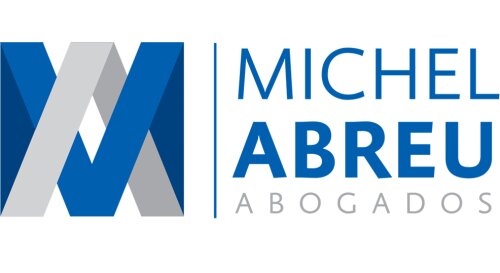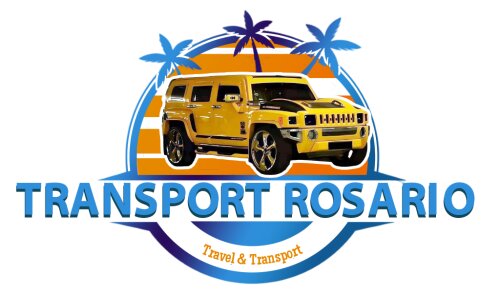Best Dependent Visa Lawyers in Punta Cana
Share your needs with us, get contacted by law firms.
Free. Takes 2 min.
List of the best lawyers in Punta Cana, Dominican Republic
About Dependent Visa Law in Punta Cana, Dominican Republic
The Dependent Visa in Punta Cana, Dominican Republic, is a visa category designed for family members of individuals who have legally established residency or are temporarily residing in the country. This visa allows the dependents, typically spouses and children, to stay in the Dominican Republic while the primary visa holder fulfills their employment or residency requirements. Obtaining a Dependent Visa involves meeting certain criteria and providing necessary documentation, aimed at verifying the relationship to the primary visa holder and ensuring they meet local entry requirements.
Why You May Need a Lawyer
Legal assistance in obtaining a Dependent Visa can be critical due to several reasons:
- Complex Documentation: The application process requires numerous documents, such as marriage or birth certificates, which may need to be authenticated or translated.
- Understanding Legal Requirements: A lawyer can help navigate the specific legal criteria and obligations required for both primary and dependent visa holders.
- Addressing Rejections: If a visa application is denied, legal counsel can assist in understanding the reasons and present options for appeals or reapplications.
- Changes in Status: Any changes in the primary visa holder’s status can impact the dependents. Legal advice can help manage these changes effectively.
Local Laws Overview
The Dominican Republic has specific immigration laws that govern the issuance of dependent visas. Key aspects include:
- Eligibility: Dependents can include spouses, children under 18, and in some cases, economically dependent parents or extended family members with valid justification.
- Residency Requirement: The primary visa holder must have a valid visa and comply with residency requirements for the dependents to obtain and maintain their visas.
- Application Process: The process involves submitting the required paperwork to the Direccion General de Migracion offices, along with proof of relationship and financial stability.
- Duration and Renewal: Dependent Visas are typically issued for the same duration as the primary holder’s visa and must be renewed concurrently.
Frequently Asked Questions
What documents are required for a Dependent Visa application?
You will need a valid passport, a completed application form, proof of relationship to the primary visa holder, health insurance, and any additional documents required by local authorities.
How long does the Dependent Visa process take?
The processing time can vary, but it generally takes several weeks to a few months, depending on the completeness of the application and the current workload at immigration offices.
Can dependents work in the Dominican Republic?
Dependent Visa holders are not automatically entitled to work. They may need to apply for a separate work permit.
Do dependents need to undergo medical examinations?
Yes, a medical examination, including vaccination records, may be required as part of the application process.
Can a Dependent Visa be converted to a different type of visa?
It is possible under certain conditions, but changes in visa status usually require meeting specific eligibility criteria and compliance with the local immigration law.
What happens if the primary visa holder loses their status?
If the primary visa holder loses their visa status, the dependents’ visas may also be at risk. It is advisable to seek legal guidance in such situations.
Are there any age limits for children to qualify as dependents?
Generally, children under 18 are eligible as dependents. Older children may qualify under specific conditions, such as continued education.
How often do Dependent Visas need to be renewed?
Dependent visas should be renewed in accordance with the primary visa holder’s renewal schedule, typically annually or as required by their visa type.
Can a Dependent Visa be transferred to another family member?
No, a Dependent Visa is non-transferable and is specific to the individuals originally designated as dependents on the application.
What is the procedure if a dependent wants to study in the Dominican Republic?
Dependents intending to study may need to apply for a student visa or permit, depending on the institution's requirements and length of the study program.
Additional Resources
For more information and assistance with the Dependent Visa process in Punta Cana, consider the following resources:
- Direccion General de Migracion: The primary governmental body responsible for immigration processes in the Dominican Republic.
- Legal Aid Services: Local legal firms specializing in immigration law can provide tailored advice and assistance.
- Embassies and Consulates: Foreign missions in the Dominican Republic can offer guidance to their nationals undergoing visa processes.
- Community Groups: Expat forums and community groups can provide shared experiences and advice on navigating local immigration processes.
Next Steps
If you require legal assistance with a Dependent Visa application in Punta Cana, Dominican Republic, consider the following steps:
- Research Law Firms: Begin by identifying local law firms with expertise in immigration law.
- Schedule Consultations: Arrange initial consultations to discuss your situation and understand the services they offer.
- Prepare Documentation: Gather all necessary documents to streamline the application or appeal process.
- Seek Ongoing Support: Engage a lawyer not only for the application process but also for potential challenges or status changes in the future.
By following these steps, individuals can efficiently navigate the complexities of obtaining a Dependent Visa in the Dominican Republic, ensuring compliance with local laws and regulations.
Lawzana helps you find the best lawyers and law firms in Punta Cana through a curated and pre-screened list of qualified legal professionals. Our platform offers rankings and detailed profiles of attorneys and law firms, allowing you to compare based on practice areas, including Dependent Visa, experience, and client feedback.
Each profile includes a description of the firm's areas of practice, client reviews, team members and partners, year of establishment, spoken languages, office locations, contact information, social media presence, and any published articles or resources. Most firms on our platform speak English and are experienced in both local and international legal matters.
Get a quote from top-rated law firms in Punta Cana, Dominican Republic — quickly, securely, and without unnecessary hassle.
Disclaimer:
The information provided on this page is for general informational purposes only and does not constitute legal advice. While we strive to ensure the accuracy and relevance of the content, legal information may change over time, and interpretations of the law can vary. You should always consult with a qualified legal professional for advice specific to your situation.
We disclaim all liability for actions taken or not taken based on the content of this page. If you believe any information is incorrect or outdated, please contact us, and we will review and update it where appropriate.










